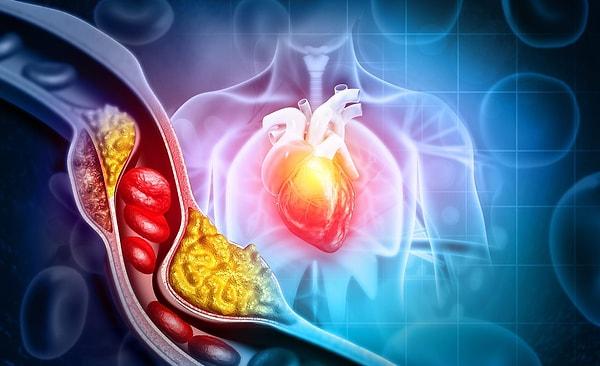Tips from Cardiologists for Maintaining Heart Health and Living a Quality Life
Whether or not we have a heart condition, maintaining heart health is crucial for everyone. We've researched what cardiologists recommend for keeping your heart healthy. Here are the essentials you need to know for your heart health. 👇
WARNING: Don't forget to consult your doctor!
Lower Your LDL Cholesterol:

First and foremost, you should keep your low-density lipoprotein (LDL) cholesterol in check. According to Los Angeles-based cardiologist Dr. Norman Lepor, the higher your risk, the lower you'd want to keep your LDL cholesterol (or 'bad cholesterol').
For most people, Lepor notes, 'We prefer LDL levels to be below 100 mg/dL [milligrams per deciliter] to prevent the risk of a heart attack and/or stroke. However, in patients with known heart disease, we now recommend keeping LDL cholesterol levels below 70 mg/dL.'
Start Regular Exercise:

The American Heart Association recommends individuals engage in at least 150 minutes of exercise per week. Cardiologist Dr. Nikki Bart, specializing in heart failure and heart transplant, mentions that exercise can lower blood pressure, improve cholesterol, and help maintain a healthy weight. 'This includes aerobic and weight-bearing exercises; using light dumbbells, walking, or swimming,' says renowned cardiologist Lepor.
Reduce Your Stress Level:

Whether it's work-related stress or an endless to-do list at home, finding ways to manage stress levels is crucial for your heart health. According to the American Heart Association, chronic stress can lead to high blood pressure, increasing the risk of a heart attack and stroke.
Not sure where to start? Exercise, meditation, and breathing exercises have been known to reduce stress levels and even boost endorphins. If you need assistance in dealing with major stressors in your life, such as finances or caregiving, seeking help from a therapist can be beneficial. A mental health professional can provide tools to help you manage your concerns.
Consume Nutrient-Rich Foods:

Cardiologists state that the Mediterranean diet, which includes a balance of fatty fish, nuts, and legumes, has been proven beneficial. They recommend another good rule of thumb is to have a 'rainbow on your plate,' incorporating a diet rich in antioxidant-packed fresh fruits and vegetables.
Additionally, Dr. Elizabeth Klodas, founder and Chief Medical Officer of Step One Foods and a board-certified cardiologist certified by the American Board of Cardiology, suggests taking in plenty of whole-food fiber, omega-3 fatty acids, antioxidants, and plant sterols. You can find these elements in various foods like nuts, fish, yogurt, fruits, and vegetables.
and E-Cigarettes

Smoking and using e-cigarettes can negatively impact not only your lungs but also your heart health because you inhale chemicals while engaging in these activities. Cardiologists state that 'many of these substances can narrow blood vessels, cause inflammation, and affect blood pressure and heart rate.'
It may not seem apparent right now, but the consequences of smoking inevitably accumulate. If you find it challenging to quit smoking, you can seek support from health organizations.
Get Adequate Sleep:

Most adults can benefit from sleeping seven to nine hours per night. Sleep not only aids in memory and growth but also helps reduce the risk of diseases harmful to heart health.
According to cardiologist Dr. Naga Pannala at ArchWell Health, getting enough sleep has been effective in reducing the risks of obesity and high blood pressure, both of which are risk factors for poor heart health. Individuals experiencing sleep issues should consult with a sleep medicine doctor to identify the root cause and find appropriate treatment options.
Learn About Your Genetic Condition:

While there are some factors related to heart failure that you can actively change (such as weight, blood pressure, and cholesterol), there are also some 'unchangeable' factors based on genetics.
According to cardiologists, 'If you have a first-degree relative (like a parent or sibling) who has had a heart attack at a young age, this increases your risk of experiencing the same. This is crucial information because in such cases, you can take additional precautions, such as going to a cardiologist earlier for early screening.
Keşfet ile ziyaret ettiğin tüm kategorileri tek akışta gör!


Send Comment